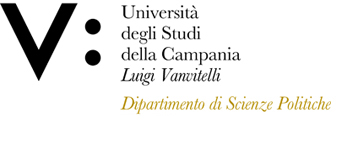Alberto INCOLLINGO
Insegnamento di MANAGEMENT TERRITORIALE E COMUNICAZIONE D’IMPRESA
Corso di laurea magistrale in PROGETTAZIONE E GESTIONE DEI SISTEMI TURISTICI
SSD: SECS-P/08
CFU: 6,00
ORE PER UNITÀ DIDATTICA: 36,00
Periodo di Erogazione: Secondo Semestre
Italiano
| Lingua di insegnamento | ITALIANO |
| Contenuti | Il Corso trasferisce conoscenze e fornisce strumenti per comprendere e analizzare il management territoriale con particolare riferimento al marketing delle destinazioni turistiche. In particolare, il corso sviluppa i seguenti argomenti |
| Testi di riferimento | Management e marketing delle destinazioni turistiche territoriali. Metodi, approcci e strumenti. Umberto Martini, McgrawHill 2017 |
| Obiettivi formativi | 1. Conoscenza e capacità di comprensione. |
| Prerequisiti | Conoscenze di base dell’economia aziendale e del management |
| Metodologie didattiche | Le attività didattiche sono costituite dalla presentazione di argomenti teorici, esercitazioni individuali e di gruppo su aspetti applicativi e discussioni di casi aziendali. Le metodologie utilizzate consistono in lezioni frontali; le esercitazioni e i casi aziendali sono supportati anche da materiale tratto dalla realtà delle aziende e dei territori. |
| Metodi di valutazione | La valutazione dello studente prevede una prova scritta di carattere sia teorico, sia applicativo, espressa in trentesimi. |
| Altre informazioni | Le lezioni frontali sono supportate da slides e altro materiale a cura del docente su specifici argomenti. |
| Programma del corso | INTRODUZIONE: IL TERRITORIO COME DESTINAZIONE TURISTICA (1 CFU) |
English
| Teaching language | Italian |
| Contents | The course transfers knowledge and provides tools for understanding and analysing territorial management with specific reference to tourism destination marketing. In detail, the course focuses on the following topics |
| Textbook and course materials | Management e marketing delle destinazioni turistiche territoriali. Metodi, approcci e strumenti. Umberto Martini, McgrawHill 2017 |
| Course objectives | 1. Knowledge and understanding |
| Prerequisites | Basic knowledge of business economics and management |
| Teaching methods | The teaching activities consist of the presentation of theoretical topics, individual and group exercises on application aspects and discussions of business cases. The methodologies used consist of face-to-face lectures; the exercises and business cases are also supported by material drawn from the reality of the companies and territories. |
| Evaluation methods | The student's assessment involves a written test of both a theoretical and applicative nature, expressed in thirtieths. The written test is considered passed in the event of a positive response to 60% of the tests/problems submitted. |
| Other information | Lectures are supported by slides and other material by the teacher on specific topics. |
| Course Syllabus | INTRODUCTION: THE TERRITORY AS A TOURIST DESTINATION (1 CFU) |








